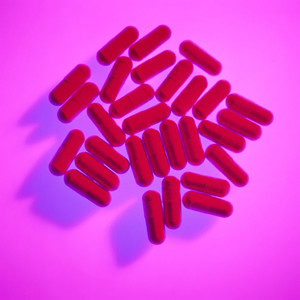China, one of the largest pharmaceutical markets in the world, is ready to issue biosimilars guidelines.
China to release biosimilars guidelines
Home/Guidelines
|
Posted 23/11/2012
 0
Post your comment
0
Post your comment

The country is reportedly moving its pharmaceutical regulations closer to international standards, with the aim to speed up drug registration. Toward this end Dr Haifeng Hu, Vice President of the Shanghai Institute of Pharmaceutical Industry said that a new Drug Registration Regulation would be released by the China State Food and Drug Administration (SFDA) after the 18th National Congress of the Communist Party, which was held in Beijing on 8–14 November 2012.
The biosimilars guidelines are then expected to be finalized after the new drug registration regulation is released.
China’s healthcare reform of 2009, which aims to offer affordable medical care to more than 90% of its residents by the end of 2011 and to the entire population by 2020 [1], is expected to bring growing demand for cheaper biosimilars.
Domestic copy biologicals have been on the market in China for 20 years, according to data from the Southern Medicine Economic Research Institute (SMEI) of SFDA. The first recombinant human interferon 1 beta was launched in 1989. Domestic erythropoietins, granulocyte colony-stimulating factors and monoclonal antibodies are also commercialized in China. The country has approved 382 genetically engineered drugs and genetically engineered vaccines, but only 21 products are innovative and the rest are copy biologicals, according to SMEI data.
At present there are no specific guidelines for biosimilars in China, and therefore they have to go through a new drug approval process, meaning that phase III trials have to be carried out for all copy biologicals. China also only accepts global multi-centre trials for chemical drugs, not for biosimilars/copy biologicals. The new biosimilars guidelines are expected to be similar to US biosimilars guidelines, as SFDA has been working more closely with FDA, but are also expected to refer to EU regulations.
The biosimilars guidelines will further improve regulations on technical requirements and the quality control of biologicals to streamline the approval process, speeding up drug registration. Industry groups have welcomed the news, which they hope can reduce the cost and duration of clinical studies required for biosimilars.
China’s medical spending over the past five years has been double its massive GDP growth rate. According to industry researcher IMS Health, China was expected to become the world’s third-largest prescription drug market by 2011 and China’s medical spending is expected to grow 22% a year through 2013.
Related articles
China follows the Indian and Thai route to affordable drugs
China’s regulatory authority adopt CTD format for NDAs
China’s booming pharmaceutical market attracts R & D
Reference
1. GaBI Online - Generics and Biosimilars Initiative. China’s Healthcare reform in 2010 [www.gabionline.net]. Mol, Belgium: Pro Pharma Communications International; [cited 2012 Nov 23]. Available from: www.gabionline.net/Policies-Legislation/China-s-healthcare-reform-in-2010
Permission granted to reproduce for personal and educational use only. All other reproduction, copy, retransmission or reprinting of all or part of any ‘Content’ found on this website is strictly prohibited without the prior consent of the publisher. Contact the publisher to obtain permission before redistributing.
Source: Financial Times
Policies & Legislation
Brazil and Mexico forge alliance to streamline medical approvals and boost production
EU accepts results from FDA GMP inspections for sites outside the US
Most viewed articles
The best selling biotechnology drugs of 2008: the next biosimilars targets
Global biosimilars guideline development – EGA’s perspective
Related content
US guidance to remove biosimilar comparative efficacy studies
New guidance for biologicals in Pakistan and Hong Kong’s independent drug regulatory authority
Canada poised to remove requirement for Phase III trials for biosimilars
European position paper on AI in medicinal product lifecycle
New guidance for biologicals in Pakistan and Hong Kong’s independent drug regulatory authority

Home/Guidelines Posted 20/10/2025
Canada poised to remove requirement for Phase III trials for biosimilars

Home/Guidelines Posted 22/07/2025
The best selling biotechnology drugs of 2008: the next biosimilars targets








Post your comment